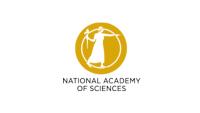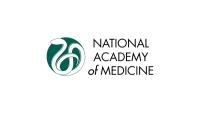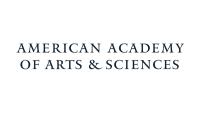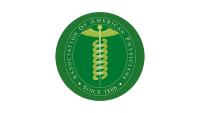Research Means Better Tomorrows

Research Means Better Tomorrows
Biomedical research means better health for everyone. For over 250 years, researchers at Columbia University’s Vagelos College of Physicians and Surgeons (VP&S) have made fundamental discoveries about how diseases work, created more effective medicines, and developed groundbreaking surgical techniques, saving the lives of millions around the world.
Columbia research has found new ways to prevent, identify, treat, and cure countless conditions. Our scientists have developed groundbreaking colon and breast cancer therapies, drugs for inflammatory disorders, and new techniques for minimally invasive heart surgery. Work underway today at Columbia may improve drugs for Alzheimer’s, immunotherapies for hard-to-treat cancers, and revolutionary treatments for many other chronic diseases. Our research improves care today and lays the foundation for a brighter tomorrow.
Research Means Exploring New Frontiers in Patient Care

A New Approach to Alopecia Areata

Alopecia areata is an autoimmune disease in which the body’s own immune system mistakenly attacks the hair follicle and shuts down hair production. A team of Columbia researchers led by Angela Christiano, Ph.D. developed a breakthrough treatment.
Enid’s Story: Cystic Fibrosis Clinical Trial Offers Hope

Through a trial offered at Columbia, a patient who is ineligible for existing treatments is the first to receive an experimental gene therapy.
Columbia Fertility Takes Pain and Stress Out of Frequent Blood Draws

An innovative lab technique developed at the Columbia Fertility Center is reducing stress and pain for patients
A Safer Approach to Heart Valve Surgery

For over 60 years, open-heart surgery was the standard therapy for aortic stenosis. But for many patients, open-heart surgery was too risky. So, Columbia surgeons led the way in pioneering TAVR, a minimally invasive approach to heart valve replacement.
Research Means New Discoveries

Sleep Patterns May Reveal Comatose Patients with Hidden Consciousness

Columbia researchers are helping physicians identify unresponsive brain-injury patients with hidden consciousness who are likely to achieve long-term recovery.
How Nerves Stimulate the Spread of Stomach Cancer
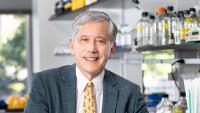
Columbia researchers have discovered that stomach cancers in mice make electrical connections with nearby sensory nerves and use these malignant circuits to stimulate the cancer’s growth and spread.
Researchers Shine Light Into Memory Formation

Memories are encoded by changes in the strength of connections between brain cells, links called synapses. Columbia researchers have imaged these synaptic changes happening as memories form for the first time in an animal.
Studying Ovaries to Better Understand Aging

The impact of aging ovaries on fertility is well known. But a Columbia scientist sees a correlation between aging ovaries and a woman's overall health, too. Her research holds the potential to help women live longer, healthier lives.
Faculty Honors & Awards
The faculty of Columbia University Vagelos College of Physicians and Surgeons has an exceptional history of receiving prestigious awards and being chosen for esteemed societies due to their innovative contributions to biomedical research. This acknowledgment highlights the consistent high-quality research conducted by our faculty.
A Legacy of Groundbreaking Research
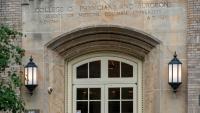
Columbia's history of advancing science and medicine precedes America's founding as a nation. For more than 250 years, Columbia researchers and faculty have made breakthroughs that have changed the face of medicine around the world.

